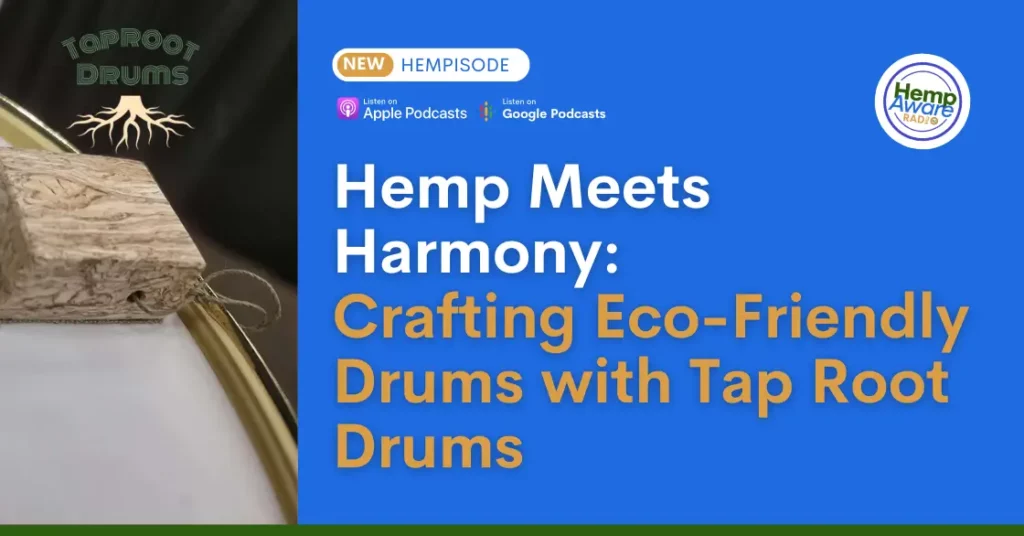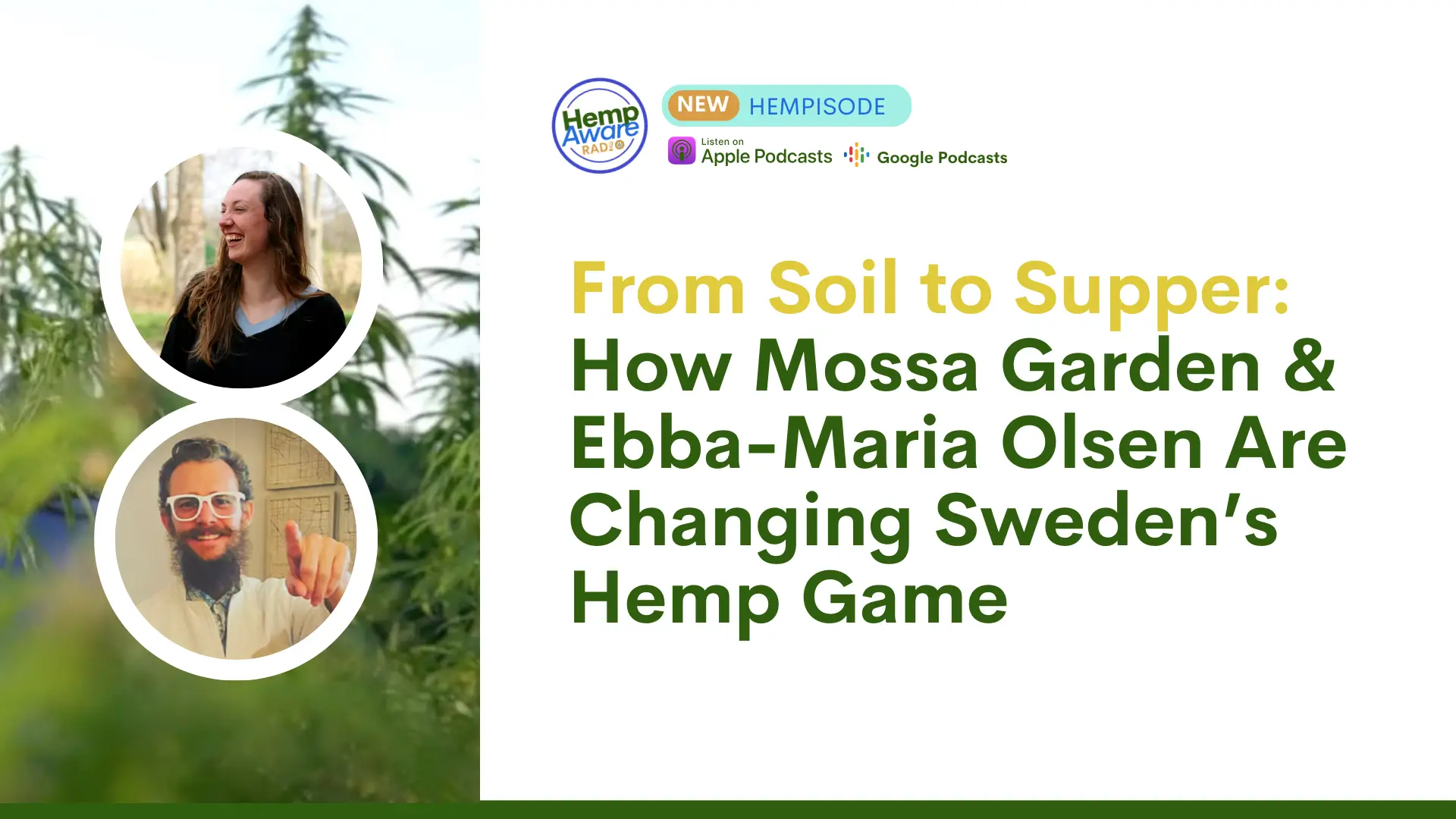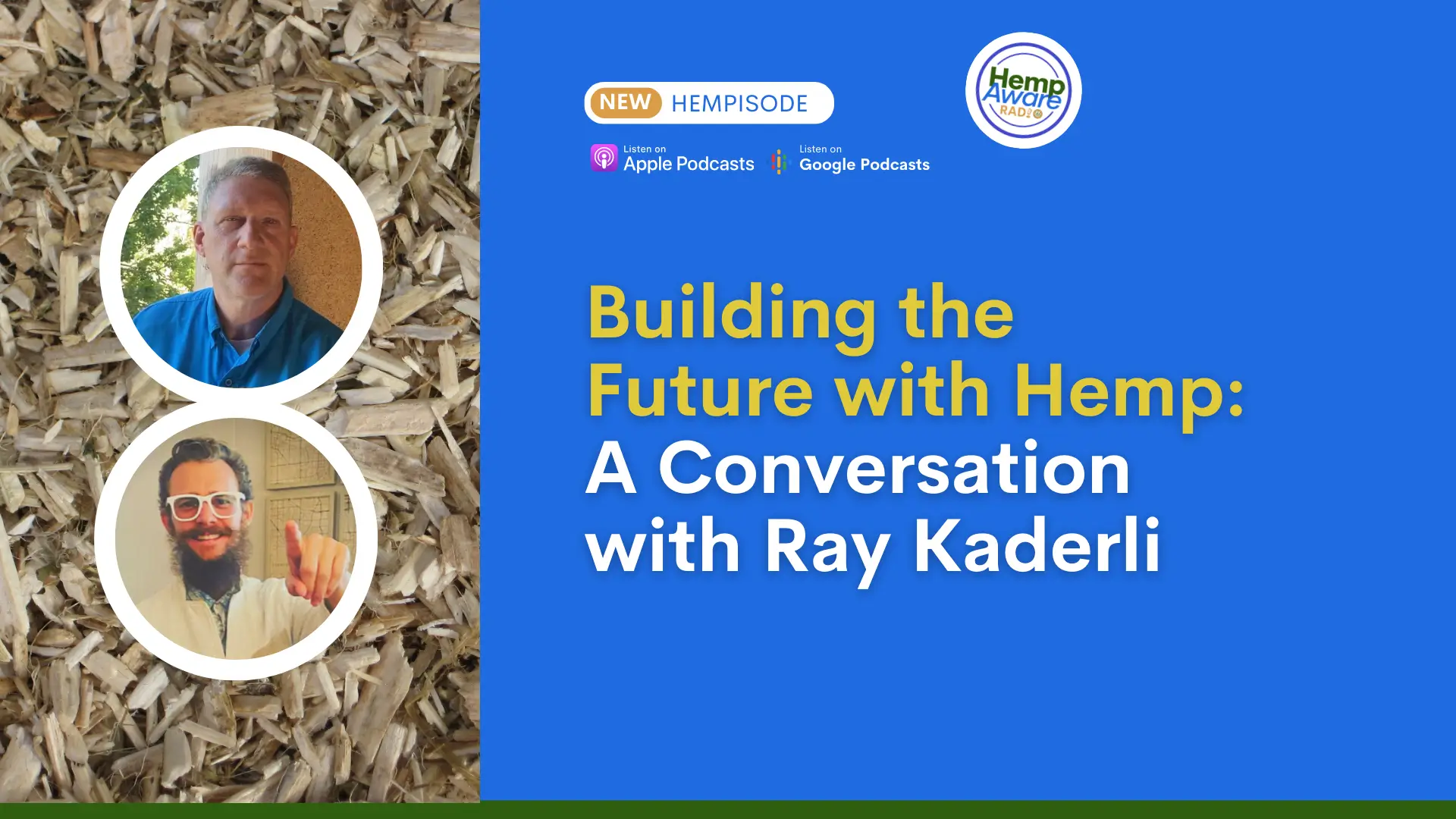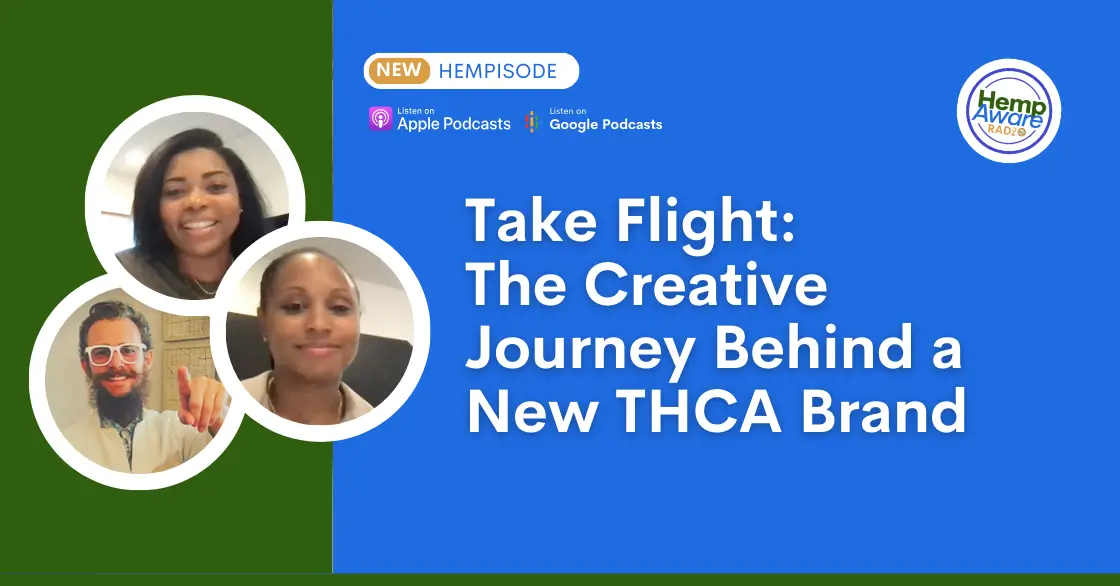TL;DR: The conversation with Sean Andrees of Tap Root Drums emphasized the versatility of hemp beyond music, the necessity for eco-education, and the power of consumers in demanding sustainable practices from companies.
By engaging more with innovative resources like hemp, we can drive significant change for a more sustainable future.
The Rhythm of Sustainability: An Introduction to Tap Root Drums
When I first had the opportunity to interview Sean Andrees, the visionary founder behind Tap Root Drums, it was a moment that truly resonated with my passion for both music and sustainability.
Sean’s journey from a traditional musician to the forefront of the hemp music industry is nothing short of inspiring, and it perfectly encapsulates how art can align with environmental responsibility.
Sean’s background as a musician has been a significant driver in his life. With a solid foundation playing piano in elementary school and later picking up the guitar, he embraced a freelancer mindset as he mingled within various ensembles.
It’s intriguing how his life experiences, including some pivotal moments that challenged him to reconsider materials used in music, led him to explore the possibilities that hemp presents.
He shared how a disruptive encounter with discussions surrounding endangered materials, particularly rosewood, at a percussion convention prompted him to seek eco-friendly alternatives.
“It struck me how dependent we are on certain materials that are on the brink of extinction. It made me think—what can we do to change that?”
This question steered Sean towards hemp, a material often overlooked for its versatility and environmental benefits.
In 2019, he discovered hempcrete and hemp wood, which lit a spark within him.
Here is an industry ripe for innovation, he thought—one that could redefine musical instrument production entirely.
What really stands out about his work is the unique method he employs to construct his drums.
Sean utilizes a method known as stave construction, involving meticulous angles and custom-built jigs to achieve the most resonant sounds possible, all while maintaining a focus on sustainability.
Eco-Friendly Practices in Drum Manufacturing
Sean takes pride in being a trailblazer in the world of environmentally responsible drum-making.
Tap Root Drums isn’t just another company; it’s a testament to what can be achieved when you prioritize sustainability.
He often emphasizes that he’s currently the only maker of drums crafted from hemp wood, which fiercely sets his brand apart from typical manufacturers who rely on conventional woods.
One of the most striking aspects of Sean’s business model is his approach to proving the sound quality of his instruments.
Rather than imposing his view, he invites the customers to share their experiences.
The feedback he frequently receives is overwhelmingly positive; terms like “warm” and “focused” come up often.
It’s heartening to hear how customers embrace his products and how that reinforces his philosophy of crafting bespoke rather than mass-produced instruments.
The Artistic Journey: Craftsmanship Meets Sustainability
For Sean, creating these instruments extends beyond mere production; it’s an artistic journey that reflects both his love for music and commitment to eco-friendly practices.
This fusion of creativity and responsibility creates a remarkable dialogue surrounding consumer eco-responsibility.
I found myself nodding along as he articulated an essential point: businesses must shoulder the burden of accountability when it comes to environmental impact, not consumers.
Sean actively seeks grants and low-cost opportunities to alleviate financial burdens for his projects, showcasing his entrepreneurial spirit.
His marketing strategies revolve around genuine interactions rather than traditional advertising, emphasizing relationships over sales.
During our conversation, I was fascinated to learn that instead of relying on digital ads, Sean leverages word-of-mouth and artist endorsements to build his brand.
His personal touch in marketing is refreshing compared to the often impersonal nature of commerce today.
He invests time in engaging with his customers directly—this level of interaction not only satisfies his consumer’s needs but helps him to innovate further.
Ultimately, Sean encapsulated a spirit I deeply admire: a drive to blend artistry with environmental responsibility.
His passion gives me hope that not only can we create beautiful music but also nurture the planet we all share.
As I left our discussion, I felt invigorated by Sean’s dedication to integrating sustainable practices into the music industry for a greener future.
If you’re interested in learning more about Sean’s journey and the incredible instruments he crafts, I encourage you to explore Tap Root Drums and follow his inspiring work on social media.
Challenges in Crafting Eco-Friendly Drums
In my journey into the world of eco-friendly percussion, I’ve encountered a plethora of challenges.
Through my conversations with Sean Andrees, the visionary founder of Tap Root Drums, I gained profound insights into the hurdles faced while crafting eco-friendly drums.
His experience has not only inspired my own endeavours but also illustrated the intricate web of struggles that accompany the pursuit of sustainability in music.
Funding Challenges: The Lifeblood of Startups
Let’s be real: securing funding can feel like an uphill battle, especially for startups trying to carve out their niche in the eco-friendly space.
Sean opened up about the various funding obstacles he encountered along the way.
From seeking grants to attending events to find low-cost opportunities, the process was anything but straightforward.
He reminisced about the time when he attempted to rally financial support, stating,
“It feels like you’re trying to push a boulder uphill while others around you seem to have it on a smooth conveyor belt.”
This sentiment resonates with me, as I’ve faced similar struggles. Funding is often the lifeblood of any new venture, and without it, dreams can seem just out of reach.
I found Sean’s approach to seeking capital very inventive; he transitioned his pursuit of funding from chasing large investors to harnessing community interest through local initiatives.
This not only helped him alleviate some financial strain but also established a loyal customer base that supported his eco-conscious mission.
Prototyping: The Art of Trial and Error
Even once the funding is secured, the journey doesn’t become less tumultuous.
The prototyping phase is filled with trials, tribulations, and, truthfully, a fair amount of frustration.
Sean described the painstaking process of crafting his drums, which involves cutting hemp wood into specific angles and shaping them using custom jigs, likening it to fine-tuning a musical piece.
“It’s a lot of trial and error,”
he remarked, illustrating the learning curve he faced.
Sean had to pivot constantly based on feedback from sound tests, which would lead him down unexpected avenues.
I can totally relate to this, as in my own ventures, each wrong turn often turned into valuable lessons that shaped better outcomes down the line.
One of the most enlightening moments was when he shared how he embraced customer feedback to refine his product, echoing my belief that collaboration with the audience can significantly enhance the creative process.
Understanding Market Needs: A Gap in Demand
The realization that there’s a significant market need for unique, sustainable instruments opened up a world of opportunities for Sean.
Through extensive market research, he uncovered a gap that wasn’t just about products—it was about consumer values.
“People are looking for sustainability in every facet of their lives, including music,”
he explained, highlighting an organic shift towards eco-conscious purchasing.
As I listened to Sean, I felt a surge of hope!
The landscape was evolving, and consumers are increasingly aligning themselves with brands that reflect their values.
Just knowing that I’m part of a community that champions sustainable practices in music production fuels my passion.
Grasping this market need also allows for a bridge between traditional craftsmanship and modern environmental consciousness, creating innovative products that resonate with like-minded individuals.
Arts with a Conscience
Together, we delved into discussions about marketing strategies. Sean has chosen to sidestep traditional advertising in favor of word-of-mouth endorsements and genuine conversations with his customers.
This resonates deeply with my perspective on building relationships in the music scene—it’s all about authenticity.
“Creating bespoke, high-quality instruments isn’t just my brand; it’s a statement,” he stated decisively.
Through this journey, both Sean and I feel passionately about reshaping perceptions of consumer responsibility.
There’s an ever-growing call for companies to be accountable for their environmental impact, and it’s crucial to spotlight that responsibility isn’t solely on the consumer.
I left our conversation energized, realizing that efforts in sustainability are more than just trend; they’re foundational for a brighter future in music and beyond.
Exploring eco-friendly drums through Sean’s Tap Root Drums has not only broadened my understanding but has also reaffirmed my commitment to blending music with sustainability—proof that even in the face of adversity, innovation can thrive.
Innovative Materials: The Benefits of Hemp in Music
When we talk about musical instruments, we often find ourselves entrenched in discussions around traditional materials like rosewood.
However, my recent revelation has been nothing short of transformative: hemp wood is not just an alternative; it’s an exciting, sustainable option that’s shaking things up in the music industry.
I had the pleasure of diving deep into this topic during a conversation with Sean Andrees, the founder of Tap Root Drums, whose insights were both enlightening and inspiring.
Hemp Wood vs. Traditional Materials
One striking point that Sean made during our chat was the comparison between hemp wood and rosewood.
While rosewood has long been celebrated for its rich, warm tones, it’s not without its problems.
The rising demand for this endangered wood has adverse environmental impacts.
On the other hand, hemp wood, while relatively new to the scene, offers similar hardness and acoustic properties.
What really grabbed my attention was Sean’s description of the unique sound quality that hemp wood drums can produce.
Many musicians have expressed that the tone is not only vibrant but “focused,” allowing for an unparalleled listening experience.
As a lover of music, I can appreciate the importance of rich sound quality, and if hemp wood can deliver that while being environmentally friendly, why wouldn’t we want to embrace it?
Contributing to Sustainability
Beyond its acoustic advantages, hemp wood is significant in the broader context of sustainability.
Sean highlighted how his brand, Tap Root Drums, actively supports reforestation and conservation efforts.
By utilizing hemp, which is incredibly quick-growing and renewable, we are not just opting for a different material; we’re also encouraging a healthier planet.
This aligns closely with my own views on sustainability.
The choice of materials we use in our everyday lives impacts the environment greatly. Sean’s initiative resonates with a movement I am passionate about: promoting eco-friendly practices within the arts.
Through Tap Root Drums, Sean is valiantly showcasing how music can intersect with sustainability, making a dedicated effort to prove that we don’t have to sacrifice quality for the sake of conservation.
What Musicians Are Saying
Perhaps the most fascinating part of our discussion involved how musicians perceive the sound quality of hemp instruments. Instead of relying solely on marketing claims, Sean chooses to let the musicians do the talking.
When he invites customers to share their experiences, they often describe hemp drums using words like “rich” and “focused.”
It’s cool to think that these instruments are gaining love not just from sustainability enthusiasts but also from serious musicians!
“It’s important for customers to express their thoughts; the sound should speak for itself.” – Sean Andrees, Tap Root Drums
Listening to Sean and his experiences reminded me of my own journey as a musician. I too have a love for quality sound and perform with various instruments.
If a hemp drum can hold its own against traditional wood, that’s something I’d love to experiment with!
It’s so refreshing and encouraging to see a new category of musical instruments that combine both sustainability and high-quality acoustics.
The Future of Hemp in Music
Taking all of this into account, I find great joy in the possibilities that hemp presents.
As I reflect on this conversation with Sean, I can’t help but feel excited about the future.
The path ahead looks promising for hemp wood, transforming it from a mere alternative into a leading contender in the world of music.
I encourage you to explore this space—whether you’re a musician, a producer, or just someone who loves music.
The next time you see a drum or a guitar made from hemp wood, take the time to appreciate the effort behind it.
ou’re not just looking at an instrument; you’re noticing a commitment to a better, more sustainable world.
Engaging Consumers: The Sales Process and Community Impact
In my journey through the realms of music and sustainability, I’ve discovered a core truth: personal connections are the heartbeat of building trust and authenticity among consumers.
This insight was beautifully illustrated during a recent conversation with Sean Andrees, the founder of Tap Root Drums.
His approach to marketing and consumer engagement was a warm reminder of how genuine interactions can redefine a brand’s impact. Instead of hollow, one-way promotional tactics, Sean emphasizes the value of direct conversations.
By engaging potential customers in meaningful dialogue, he’s able to forge deep connections that not only foster trust but also lead to a better understanding of their needs.
Interestingly, we live in a time where word-of-mouth marketing shines especially bright, particularly in niche industries like ours. Sean’s experience speaks volumes about leveraging this phenomenon. Instead of pouring resources into traditional marketing strategies, he opts for organic growth by encouraging conversations about his drums.
As he puts it, “I’d rather have customers share their personal experiences than rely on flashy ads.”
This approach not only resonates with eco-conscious consumers but also encourages them to become advocates for sustainable practices in the music industry.
“It’s like you create a ripple effect,” Sean shared, clearly passionate about the community he’d built around his brand.
It was heartwarming to hear him talk about the relationships he’s cultivated with musicians who not only appreciate his drums but are also committed to the same eco-friendly values.
By focusing on community-building, Sean has transformed his customer base into a collective of eco-conscious musicians who support each other.
It reminds me of my own endeavors; through initiatives like the Human Exchange Musical Programs, I aspire to create a similar supportive network where music can be a catalyst for change.
Challenges and Insights
Throughout our conversation, Sean was candid about the struggles of starting his business.
One of the significant hurdles he faced was securing funding to prototype his innovative drums.
This resonated with me as I’ve navigated similar challenges in my pursuits within the hemp industry.
Many budding entrepreneurs stumble when attempting to bring their sustainable products to market, often overwhelmed by the financial constraints.
I learned that Sean tackled this challenge creatively, seeking grants and cost-effective opportunities at events. There’s something incredibly inspiring about hearing how resourceful one can be when driven by a passionate cause.
As an entrepreneur, I understand that the process doesn’t just stop at product creation; it’s about ensuring every step reflects your brand ethos. Sean’s method of sourcing hemp wood and constructing his drums showcases his dedication to quality and sustainability.
I found it fascinating how each piece is cut meticulously, transforming natural materials into unique, handcrafted instruments.
This attention to detail is what sets him apart from mass producers. When discussing the sound of his drums, Sean encourages customers to share their impressions, allowing the instruments to speak for themselves.
That’s what I call having complete faith in your craft!
Building a Sustainable Music Community
The part of our discussion I found particularly commanding was Sean’s perspective on sustainable marketing.
He strongly believes that businesses must be accountable for their environmental footprint, a sentiment that resonates with my values in promoting hemp-derived products.
Too often, the onus is placed solely on the consumer to make eco-friendly choices. In contrast, Sean argues that companies should lead by example, providing sustainable options that empower consumers to make informed decisions.
It’s a paradigm shift that could redefine the way we approach marketing and community engagement.
As I reflect on my own interactions with customers, I realize that it’s these principles that I strive to incorporate in my practices.
By building personal relationships and prioritizing eco-conscious dialogues, I aim to create a thriving community of individuals dedicated to making a difference.
My hope is that we can collectively cultivate a culture where sustainability isn’t just an afterthought but a fundamental principle woven into the very fabric of our musical journeys.
Exploring the potential of hemp doesn’t just end at producing quality instruments; it’s about creating a movement that inspires others.
In doing so, I find encouragement in knowing there are fellow changemakers like Sean who share this dream.
Together, we can drive forward the conversation on eco-responsibility in the music industry, and I am excited to see how this community continues to grow.
Envisioning the Future: Hemp as the Key to Sustainable Living
Recently, I had the incredible opportunity to interview Sean Andrees, the visionary founder of Tap Root Drums, on the Hemp Aware Radio.
Our conversation unfolded fascinating insights into how hemp, a natural, versatile resource, can transform more than just the music industry.
As someone who’s deeply passionate about sustainability, I found Sean’s mission both inspiring and thought-provoking—he’s not only focused on creating eco-friendly drums but also on advocating for a broader adoption of sustainable practices across various sectors.
During our dialogue, Sean shared his initial introduction to the immense potential of hemp, which coincidentally sparked his drive to create an eco-conscious business.
Reflecting on his experiences at a percussion convention, he mentioned discussions about endangered materials, particularly the exotic rosewood from Honduras.
This encounter was a wake-up call for him, pushing him to explore alternatives.
Hemp’s Sustainable Resonance: Redefining Musical Instruments and Consumer Choices
In 2019, he discovered innovations like hempcrete and hemp wood, which opened his eyes to the myriad benefits that hemp could bring—not just to music, but to sustainable living in general.
One of the things that resonated with me was Sean’s unique position as a trailblazer in the industry.
He’s currently the only drum maker using hemp wood, which illustrates the potential for hemp in diverse consumer products.
It’s not just about making a product—he’s redefining what consumers expect from musical instruments.
When customers describe his drums, they often use terms like “warm” and “focused,” highlighting the deep connection between sustainability and quality.
It got me thinking about how we, as consumers, often overlook the stories behind the products we choose. How can we advocate for better options in our daily lives when so many of us are unaware of the choices available to us?
Empowering the Eco-Conscious Consumer: Driving Sustainable Industry Transformation
Throughout our discussion, Sean emphasized the importance of education. It struck me that consumers today hold more power than ever to demand sustainable alternatives.
By promoting eco-conscious education and awareness, we can drive significant changes in the industry.
We’re not just passive participants in the market; we can be the catalysts for change. I believe that if we demand more from companies, they will inevitably respond.
After all, consumers desire products that not only look good but also resonate with their values.
Sean’s journey also highlighted the challenges hemp businesses face, particularly regarding funding.
It was eye-opening to learn about the lengths he goes to secure resources for his innovative endeavors—a process that needs to be cultivated for the industry to thrive.
Personally, I’ve often pondered how intertwined the concepts of resources and knowledge are in supporting ethical business practices.
Cultivating Sustainable Futures: Hemp, Authenticity, and Collective Accountability
If we can pave the way for businesses that prioritize sustainable methods, the ripple effect could lead to a market shift.
Moreover, Sean shuns traditional marketing routes, favoring relationship-building through direct conversations with his customers.
This approach not only nurtures a connection but also generates a community of advocates for his brand.
I find this method refreshing in an age dominated by digital ads—how often do we see a product and immediately feel its authenticity?
It’s a stark reminder of why personal narratives and the ethical journey behind brands matter.
As Sean and I wrapped up our enlightening conversation, what stuck with me the most was our shared belief in accountability.
Companies need to ensure they are creating an eco-friendly impact rather than placing the burden solely on consumers.
Our roles are intertwined; while we can demand change, businesses must rise to the occasion and provide options that align with our values.
In a world increasingly focused on eco-conscious living, exploring the use of hemp as a material opens a wealth of possibilities for consumer products, from clothing to building materials.
I believe that embracing alternatives like hemp not only supports sustainable living but also fosters innovation in industries that desperately need it.
After all, when we envision a brighter future, why not populate it with materials that are better for our planet?
For those interested in Sean’s work with Tap Root Drums, I encourage you to check out their website at taprootdrums.com.
It’s exciting to witness the promising future of hemp unfold, and I wholeheartedly believe that by prioritizing education and advocacy, we can all play a role in shaping a sustainable tomorrow.






